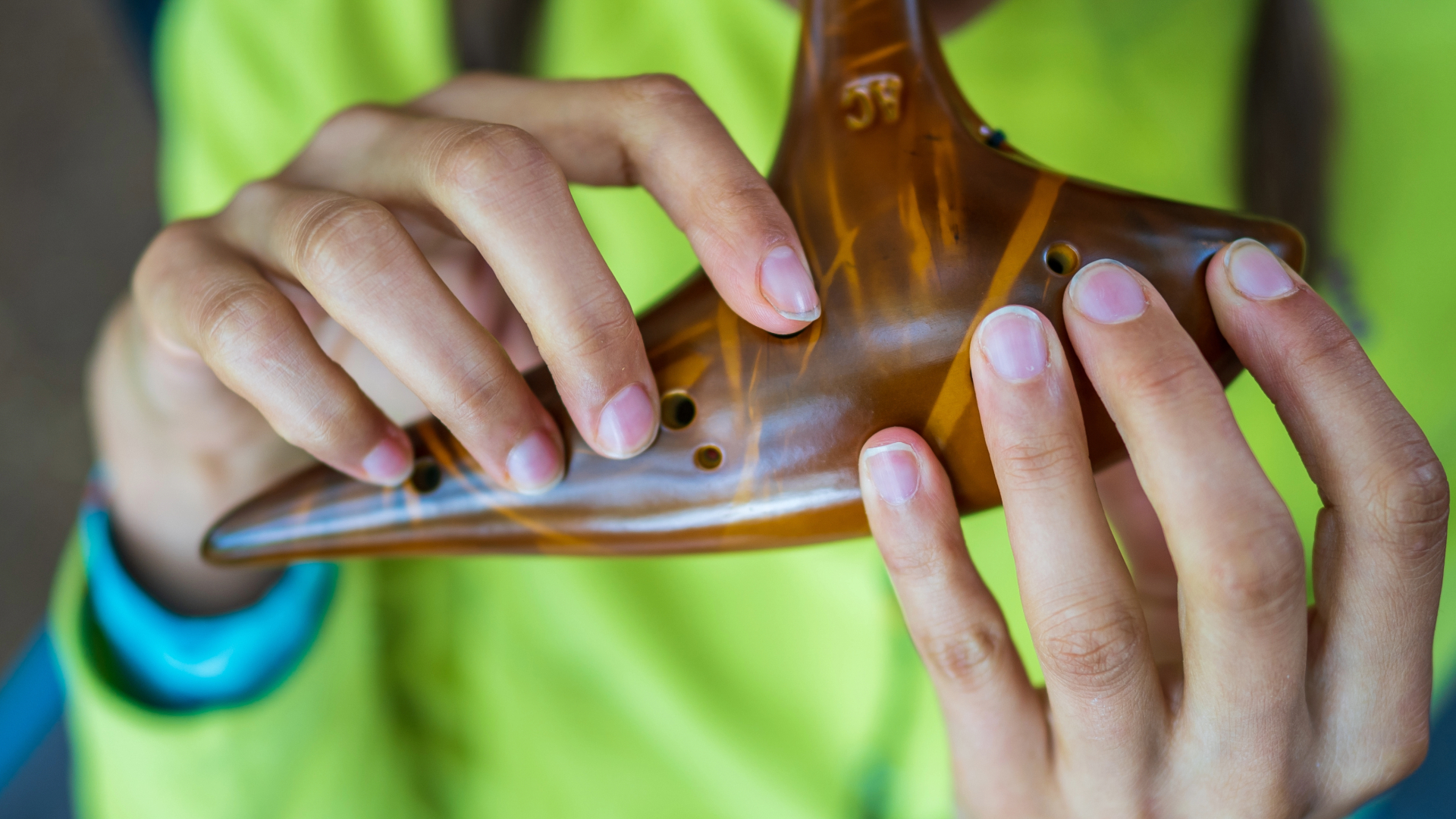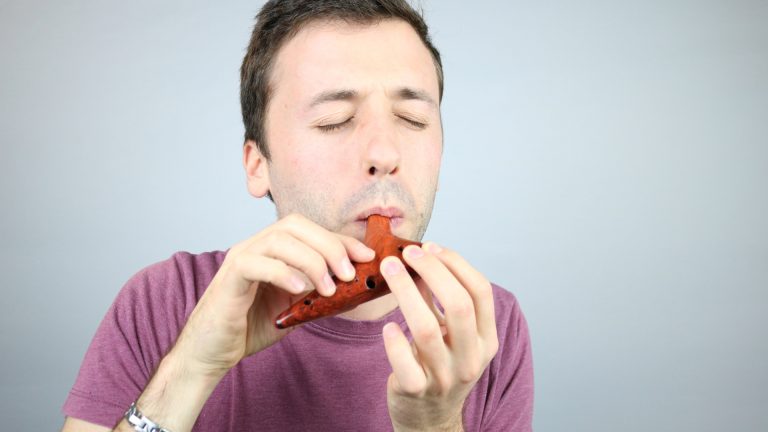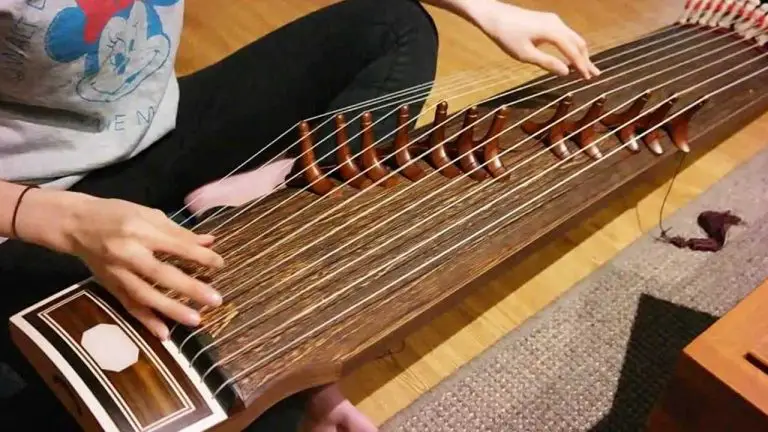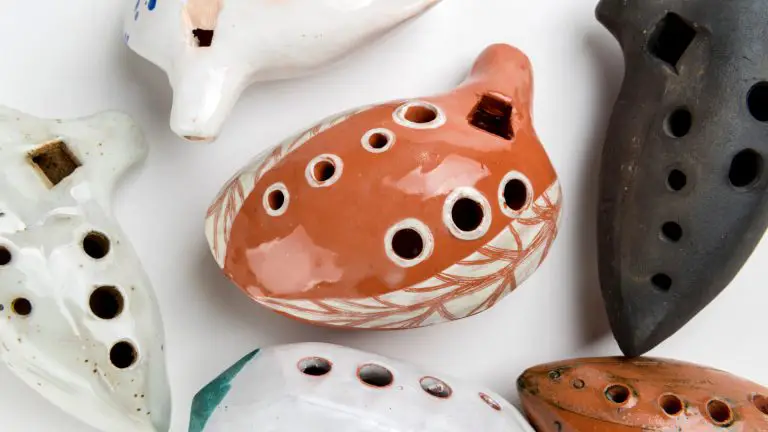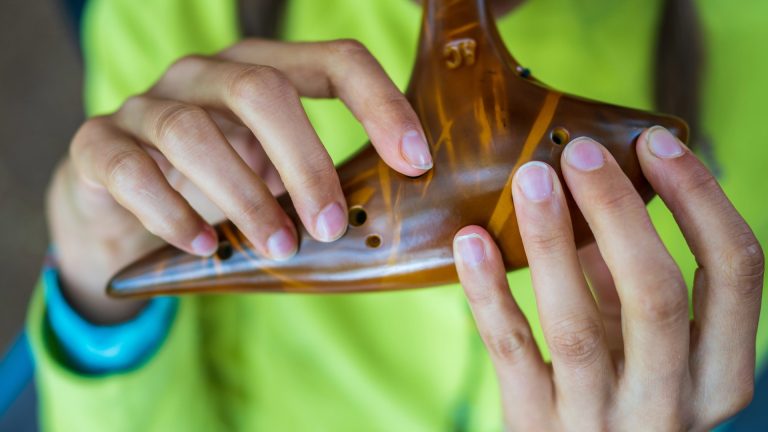Why Does My Ocarina Sound Bad? Tips for Improved Tone Quality
Folkstrings.com is reader-supported. When you buy through links on our site, we may earn a small commission.
Discovering that your ocarina doesn’t produce the beautiful sounds you expect can be disheartening. The cause of an ocarina sounding bad often boils down to a few common issues.
These can range from the way the ocarina is made, to the method in which it’s played. Poor sound quality might be due to improper tuning or the result of a lack of maintenance. Understanding these factors is essential to diagnosing the problem.
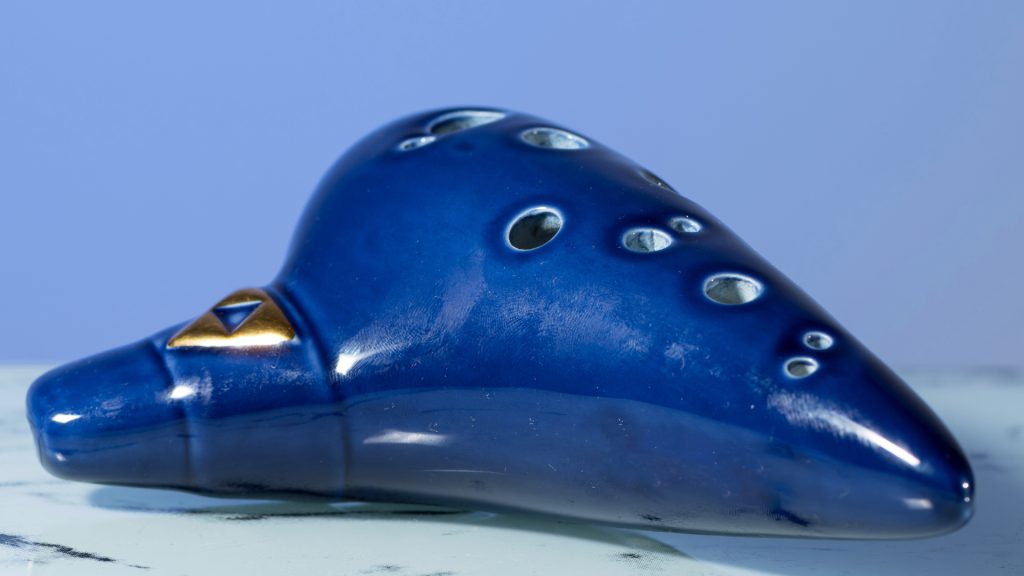
Maintenance plays a key role in the performance of your ocarina. Consistent care ensures that the instrument’s sound quality remains intact and that it lasts longer. Just as our bodies require care, such as moistening the skin to prevent dryness, an ocarina also needs regular cleaning and careful handling to function correctly.
Sometimes the problem is as simple as a build-up of moisture or dirt, while other times it may require more technical adjustments, such as fine-tuning the breath control.
Key Points
- Ocarina sound quality can be affected by manufacturing flaws, playing technique, and maintenance.
- Regular care and cleaning are essential for preserving the sound and longevity of an ocarina.
- A bad-sounding ocarina may need fine-tuning or technical adjustments related to breath control.
Table of Contents
Tuning and Sound Quality
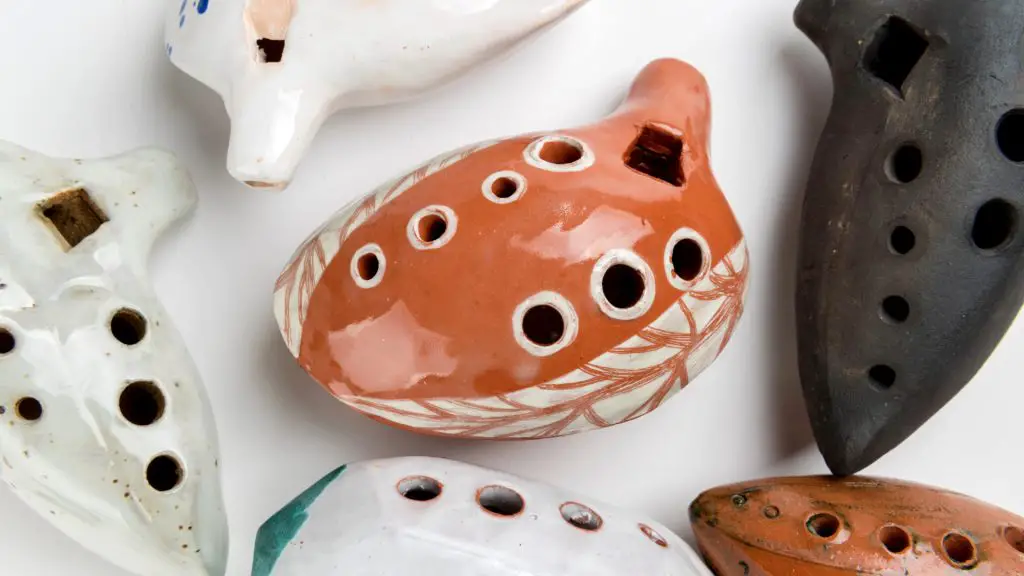
Ensuring an ocarina is in tune and produces a quality sound involves precision and care. My goal here is to guide you through using a tuner for accuracy, identifying pitch issues, and achieving the clear sound that makes playing the ocarina so enjoyable.
Using a Tuner for Accuracy
When I tune my ocarina, I always use a digital tuner. A good tuner indicates whether the pitch of my notes is too high (sharp) or too low (flat). I make sure to:
- Tune in a quiet environment: Background noise can interfere with the tuner’s accuracy.
- Check each note: I play each note and watch the tuner for the pitch alignment, making adjustments as needed.
Table: Example of Tuning an Ocarina Using a Digital Tuner
| Note | Digital Tuner Reading | Adjustment Needed |
|---|---|---|
| A4 | Slightly Sharp | Reduce breath pressure |
| B4 | Slightly Flat | Increase breath pressure |
| C5 | In Tune | No adjustment needed |
Identifying and Fixing Pitch Issues
Detecting pitch issues in my ocarina playing involves close listening and frequent checks. If I find a note that consistently sounds out of tune, here are steps I take to correct it:
- Isolate the problem note: I play the troublesome note several times to understand the deviation.
- Adjust my technique: Sometimes I adjust my breath pressure or change my fingering to fix pitch mistakes.
Achieving a Clean Sound
For me, a clean sound on the ocarina combines accurate tuning with proper technique. To maintain a pure tone without any unwanted noise, I focus on:
- Controlled breath: A steady stream of breath helps avoid a wavering tone.
- Proper hand position: I ensure my fingers fully cover the holes to prevent air leaks which can cause a squeaky sound.
Checklist for a Clean Ocarina Sound
- Consistent breath control
- Full finger coverage on holes
- Regular cleaning to prevent blockage
Common reasons why your ocarina sounds bad
If you’re struggling with your ocarina producing poor quality sound, you’re not alone. The most common issues tend to be airiness in the sound, inconsistent volume, unclear articulation, and challenges with high notes. Let’s explore these issues and how I’ve learned to address them.
Addressing Airiness and Volume Issues
When I play my ocarina, sometimes the sound comes out airy or too quiet. This usually happens if:
- I’m not covering the holes completely, which lets extra air escape.
- I’m not providing a steady stream of air, which is crucial for a clear sound.
Quick Tips:
- Ensure that my fingers completely cover the holes.
- Practice steady breath control.
Improving Articulation
I’ve noticed that unclear articulation can make my music sound muddled instead of crisp. It’s about how I start and end each note. If my tongue isn’t in the right position, or if I’m not using it consistently, the notes won’t be well-defined.
Practice Exercise:
- Focus on beginning each note with a gentle ‘tu’ sound.
Managing Difficult High Notes
High notes on the ocarina can be a real challenge; I’ve often found myself struggling with them. They can sound screechy or refuse to sound at all if I don’t:
- Blow harder, as high notes require more air.
- Adjust my embouchure, which is the way I shape my mouth and use my lips.
To Tackle High Notes:
- Gradually increase air pressure for higher notes.
- Keep my embouchure firm.
Maintenance and Care
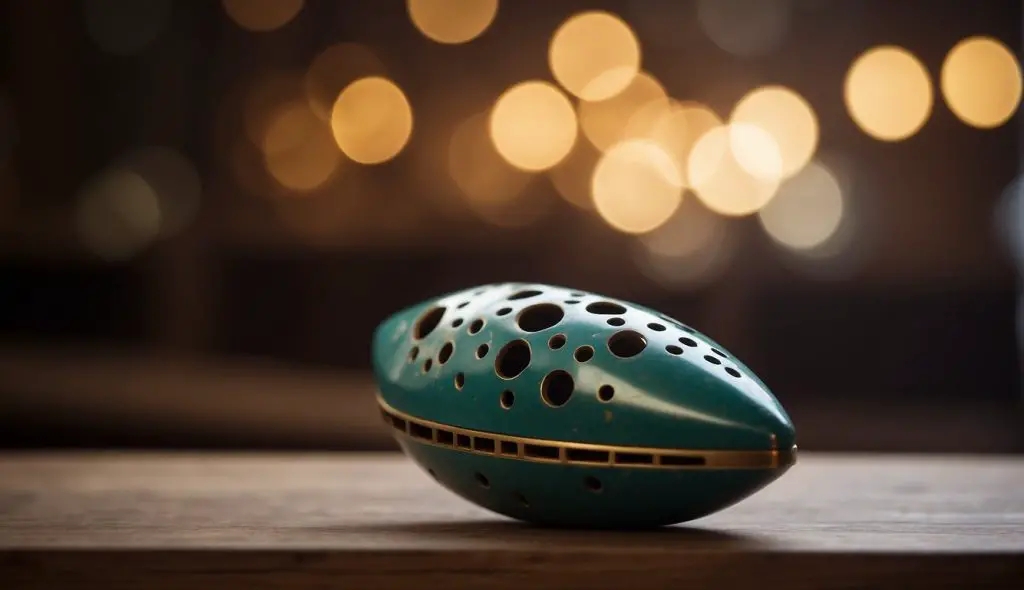
Maintaining my ocarina is key to ensuring that it produces the best sound possible. I always remember that neglecting the care it needs can lead to poor sound quality, such as an unpleasantly acute bend in notes.
Regular Cleaning
I make it a habit to clean my ocarina regularly. Here’s how I keep it in top condition:
- Dry Cleaning: After each use, I wipe the mouthpiece and the body of the ocarina with a soft, dry cloth to remove saliva and fingerprints.
- Wet Cleaning: About once a month, I use a slightly damp cloth to clean more thoroughly, avoiding any use of harsh detergents.
- Airway Cleaning: I check the airway for any blockages and gently clear out any residue using a soft, thin tool.
- Re-tune: Post-cleaning, I play a few notes to ensure the ocarina hasn’t lost its tune.
Storing Your Ocarina Right
Proper storage of my ocarina also contributes to its performance:
- Temperature: I keep it away from extreme temperatures, as they can warp the ocarina and affect its sound.
- Positioning: I store my ocarina in a sturdy case with padding to prevent any damage.
- Humidity: I maintain a consistent humidity level in its storage area to prevent cracking.
Frequently Asked Questions
As an experienced ocarina player, I often encounter questions about improving ocarina sound quality.
Here are a few common queries and my insights based on knowledge and experience.
How can I improve the sound quality of my ocarina?
To enhance the sound quality of your ocarina, make sure it is clean and free from any obstructions in the airway.
Proper breathing techniques and consistent practice can also greatly improve the sound you produce.
What might cause an ocarina to have a breathy or airy tone?
An airy tone can result from inadequate breath control or a partially blocked windway. It’s important to maintain steady air pressure and to regularly check for any buildup that could impede airflow.
Are there any techniques to playing high notes clearly on an ocarina?
Playing high notes clearly on an ocarina requires controlled breath support and proper fingering technique. Keep your fingers close to the holes to quickly and completely cover them when needed.
Why do some notes on my ocarina play flat and how can I fix it?
If your ocarina plays flat, check your breath pressure; insufficient air can lower the pitch. Moreover, ensure your fingers are fully covering the holes, as any leaks can also cause a note to sound flat.
Can the material of an ocarina affect its sound, and how?
Yes, the material of an ocarina affects its sound. Ceramic ocarinas often produce a rich and warm sound, while plastic ocarinas may have a brighter tone.
Each material brings a unique timbre to the instrument.
What are common mistakes that lead to poor sound when playing the ocarina?
Common mistakes include inconsistent breath pressure, incorrect fingering, and not properly sealing the finger holes. These mistakes can all lead to a poor sound when playing the ocarina.
Practicing good techniques and being mindful of these mistakes will help to avoid them.
Author Profile
-
Daniel Johnstone is an English writer with a love for stringed instruments from around the world.
He shares his love for these instruments through his writing for folkstrings.com, a website dedicated to all things related to folk string music.
Daniel's passion for music started at a young age, and he has since become an accomplished musician, playing guitar, cavaco, and recently, the harp.
His dedication to learning and sharing his knowledge of stringed instruments is evident in his insightful and engaging blog posts. Whether you're a seasoned musician or a beginner, Daniel's writing is sure to inspire and entertain you.
When he's not playing music or writing, you can find Daniel exploring new instruments and seeking out new sounds to share with his readers.
Latest entries
 AutoharpApril 4, 2024What Is the Autoharp Made Of: Exploring Its Materials and Craftsmanship
AutoharpApril 4, 2024What Is the Autoharp Made Of: Exploring Its Materials and Craftsmanship AutoharpApril 4, 2024Is Autoharp Easy to Play? Unveiling the Truth for Beginners
AutoharpApril 4, 2024Is Autoharp Easy to Play? Unveiling the Truth for Beginners AutoharpApril 4, 2024What Is an Autoharp Worth? Your Guide to Pricing and Value
AutoharpApril 4, 2024What Is an Autoharp Worth? Your Guide to Pricing and Value AutoharpApril 4, 2024Are Autoharp and Zither the Same Thing? Unraveling String Instrument Myths
AutoharpApril 4, 2024Are Autoharp and Zither the Same Thing? Unraveling String Instrument Myths
Affiliates:
This post may contain affiliate links that at no additional cost to you, the site may earn a small commission. We only recommend products we would use ourselves and all opinions expressed on this site are our own.
Accuracy Advice:
While we strive to provide up-to-date and accurate information, the content in this article may not reflect the most current research or medical guidelines. We encourage readers to do further research and consult with professionals for more personalized advice.
Our Recommendations:
The products and services mentioned in any of our articles are recommended based on our independent research and personal experience. We are not sponsored by any company. We aim to suggest products and services we believe are of high quality and could be beneficial to our readers.

